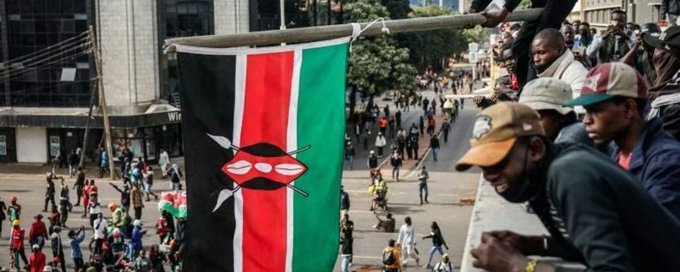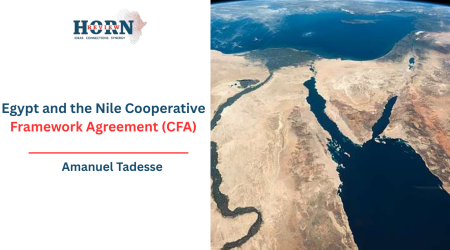
28
Jun
Kenya Protests: A New Social Contract Being Written on the Streets
What is happening in Kenya’s streets is less a replay of past discontent than a new page in the country’s political history. It is one year since the deadly protests of 2024, and a new generation of protests has emerged, driven by a generation that has significantly rewritten the social agreement with its government. The real question that has to be examined is not just what’s happening, but whether the state’s solutions to this deep civic awakening treat its cause.
The 2024 protests, which were precipitated by the Finance Bill, were the turning point. It forced President William Ruto’s regime to withdraw the bill, an uncommon victory of people’s protest within the region. However, it was not an enduring solution but a temporary concession. As in usual African political affairs, the government then reinstated the majority of the same controversial taxes through other bills(Liverseed.C,2025). The move exposed a fundamental flaw of the government’s process: it was reactive under pressure and not an inclination to do things differently. The actions of the administration conveyed the message that there was a “wait out the storm” attitude rather than an advancing in good faith, inclusive dialogue. This approach, following the political leadership’s play from the past in stifling opposition throughout time, has now been met by a new, more determined type of civic action.
The current movement, while acknowledging the events of 2024, is a different order. It is a reflection of the hidden crisis of state legitimacy that the earlier protests were only hinting at. When the government enacts into law a new Finance Bill after removing some of the most controversial taxes, but with provisions that grant the Kenya Revenue Authority sweeping access to citizens’ financial information without a court order, that is more than a symptom of an issue of fiscal policy. It is a symptom of a government that is more interested in its extractive capacity than the privacy and trust of its citizens. The priority of the government remains to raise more revenue and service debts to such entities as the IMF, but never deals with the widespread sense of unbridled elite corruption and fiscal profligacy. The “aristocratic luxuries” of some state officials, as one professor at a Nairobi university pointed out, are starkly contrasted against the austerity expected of suffering citizens, and this moral and economic dissonance provokes outrage.
The primary “solution” from the government to this public protest has been repression. Security forces again welcomed protesters with tear gas, rubber bullets, and live ammunition on the anniversary of the 2024 protests, leaving casualties. Instead of de-escalating, this repressive reaction has proved to be a strategic mistake. As ground analysts and human rights groups noted, overuse of force has not weakened the movement but rather galvanized it, making a budgetary dispute become a human rights crisis. This evidence based argument proves that repression, which is rampant across the continent, is becoming increasingly less effective as a mechanism of control when met with an ethical, decentralized movement. The inability to explain the scores killed in 2024 adds to the protesters’ perception that they are fighting impunity, and not just policy.
Leaders are offering any serious solutions then? While the government may talk of the right to protest, its actions from communication cutoffs to the exercise of force,telegraph a deep unwillingness to yield power or to fundamentally rethink its style of rule. The accommodation of opposition members within the cabinet, which was undertaken in 2024, has been suspect among protesters and is viewed as a co-optation of dissent with no resolution of the underlying problems. The cycle of concessions and repression does not address the underlying crisis of trust.
Seen from an African perspective, what is happening in Kenya is a powerful barometer for the continent. This is not theory; it is a concrete expression of a new civic power. The protesters’ demands have become existential, extending as far as accountability, transparency, and even the nature of governance. They are asking implicitly: are we citizens or subjects.
What happens next will depend on the government’s move. If President Ruto continues with the policy of coercive repression and cosmetic policy reform, the crisis of legitimacy will be exacerbated. The protests, albeit smaller in size, will be an enduring feature of the political landscape, a constant reminder of the failure of the state. This will inevitably culminate in a decline in investor confidence, undermine the status of Kenya as a stability and diplomatic hub for the sub-region, and quite possibly motivate comparable youth movements within Ethiopia or Uganda, where there are comparable conditions of fiscal hardship and elite corruption.
A true solution would take the drastic form of a change by the government. It would mean an open, public audit of government expenditure and an unambiguous, time-lined plan to eliminate corruption. It would also mean responsibility for police brutality, with the offenders facing legal actions, a step that has been missing in large parts since the 2024 protests. Short of these steps, no fresh bill or budget reduction will appease the demands of the public for systemic change.
The movement has not put forward an official solution in the guise of a proposed bill or political party, and this is by design. Their solution is a new model of governance itself,one where leaders are held accountable, public funds are not looted, and the state serves its people, and not otherwise. Absence of formal leadership makes it hard to negotiate, but also the movement cannot be decapitated or co-opted. It is a decentralized, historic call for a new, fairer reality. The question is whether Kenya’s leadership is willing to build that reality, or if it will remain wedded to a playbook that has demonstrably failed against the will of a new generation.
By Bethelhem Fikru,Researcher,Horn Review
Reference
Claudia liverseed. (2025).Kenya financial bill protests University of Wisconsin pp.1,Kenya Finance Bill Protests – The Nonviolence Project – UW–Madison










